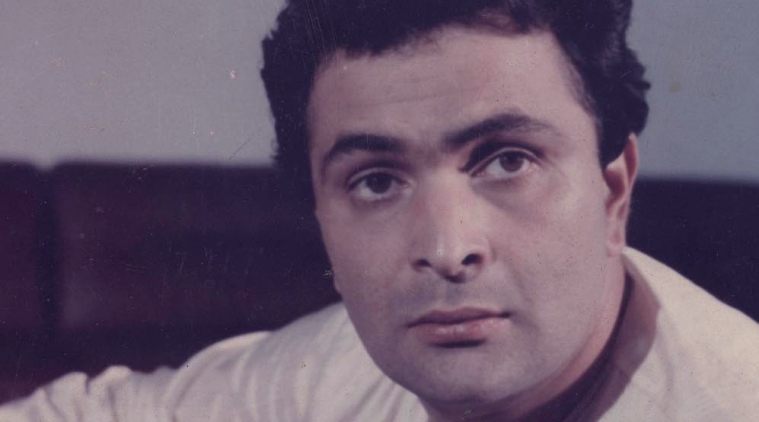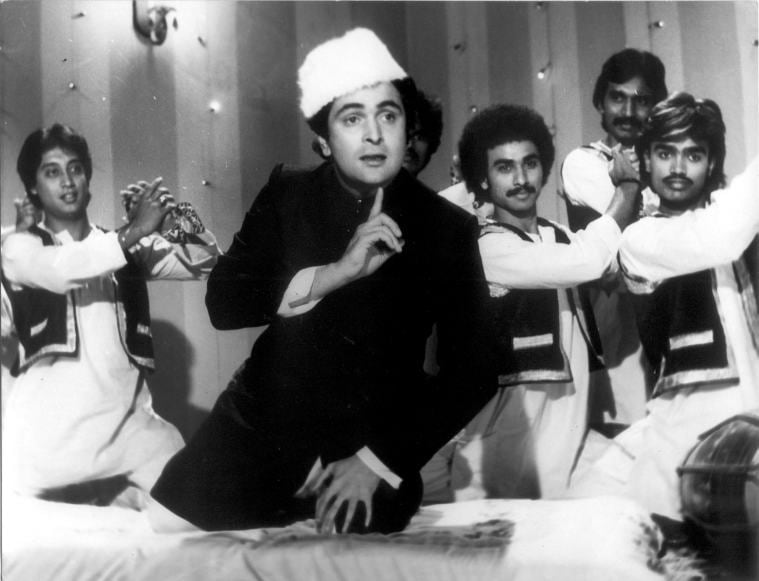 In his nearly 50-year-old career, Rishi Kapoor courted stardom. (Express archive photo)
In his nearly 50-year-old career, Rishi Kapoor courted stardom. (Express archive photo)
The connection of the lightning call from Bombay to Bikaner was full of static — Rishi Kapoor could barely make out what Manmohan Desai was trying to tell him, something about a role in a film called Amar Akbar Anthony. Desai wanted Kapoor to play Akbar but the young actor was confused. “How can I play Akbar? My grandfather (Prithviraj Kapoor) played Akbar in Mughal-e-Azam!” The hit filmmaker was flummoxed by his response and said, “What’s wrong with this stupid man?” to Ghanshyam, Kapoor’s secretary, who was with Desai in Bombay during the call.
The matter was cleared up soon after and Kapoor went on to star in one of Hindi cinema’s most enduring hits, alongside Amitabh Bachchan and the late Vinod Khanna. If he had ever worried about being eclipsed by the ‘Angry Young Man’, and the ‘Angsty Young Man’, he needn’t have — as the qawwali-singing Akbar, the tailor who wooed the girl with much abandon, and the most optimistic one of three brothers, Kapoor held his own.
The anecdote is one of many he recounted in his 2017 autobiography, Khullam Khulla: Rishi Kapoor Uncensored, a breezy chronicle of the life and loves of Raj Kapoor’s most successful son, who made his debut as a 16-year-old in Mera Naam Joker (1970) and had an illustrious career as Hindi cinema’s singing and dancing youngster, a jersey-sporting lover, before he embarked on a second innings as an efficient supporting actor in films such as Luck By Chance (2009), Agneepath (2012), D-Day (2013), Kapoor & Sons (2016) and Mulk (2018).
 Film star Rishi Kapoor in film Amar Akbar Anthony. (Express archive photo)
Film star Rishi Kapoor in film Amar Akbar Anthony. (Express archive photo)
In his nearly 50-year-old career, Kapoor courted stardom, critical acclaim and controversy with spontaneity, a trait he prided himself on having as an actor and otherwise. In the age of social media, his ill-considered opinions and comments would frequently land him in hot water, but Kapoor was never one to back down. He was always aware of the privilege afforded to him from birth, and all through his life. He’d always backed himself, whether it came to his choice of films, the sweaters he wore in most of them till he was 44, and even his reckless tweets. He lived large and openly, and often became an example of the ways in which long-lasting stardom matures, or not, with the passing of time.
Also read |
In the last few years, Kapoor reminded us of how natural an actor he could be, how he could handle even the most saccharine or righteous roles with a deft touch, and had us cheer him on his rewarding comeback to the industry. In interviews and other conversations, he could be a jester and a tease, he was his own person, no filters please. In 2014, when he discovered that the national archives of The Indian Express in Chandigarh had a photograph of him with a young Ranbir on the sets of Prem Granth (1996), he wanted it for his autobiography. Upon being informed that it had to be purchased, Kapoor joked, “Mera photo khichte ho aur mujhse se hi paise lete ho? (You take my photo and you charge me for it?).” Those who knew him will tell you, he was only being himself.